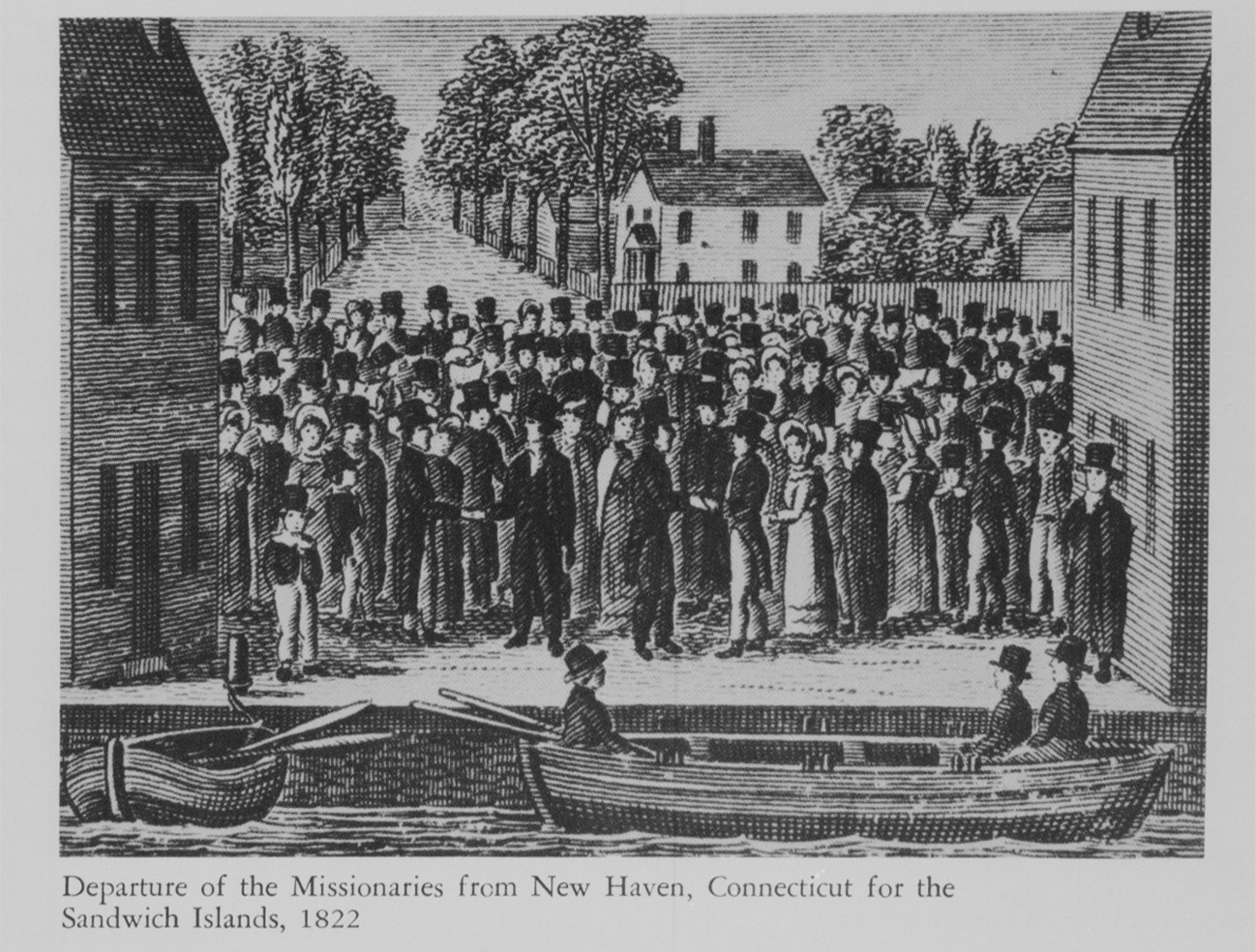Keōpūolani, mother of Liholiho and Kaiukeaouli, born with the kapu moe, was the highest ranking ali‘i, though she was instrumental in ending the ‘ai kapu. She welcomed the first missionaries in Kailua and “without hesitation approved their proposals.”1 She quickly supported the educational effort and after moving to Honolulu, began regular meetings with the missionaries to learn about Christianity.
The Lahaina Mission Station was established when Keōpūolani moved to Maui in 1823. To follow Christian teachings, she confirmed her marriage to Hoapili and renounced her second husband. Falling ill in late August1823, she gave her final instructions and was baptized on her deathbed on September 16, 1823. “Thus the highest tabu chiefess became the first Hawaiian convert.”2
“Keopuolani soon recognized that there were different types of foreigners. One kind led Liholiho into drunkenness and debauchery. But the other revealed selflessness, and eagerness to instruct, and a restraint which characterized most of the American missionaries. She expressed a desire that Nahienaena and Kauikeaouli ‘might be well educated, and particularly that Nahienaena might be trained up … like the wives of the missionaries.’”
“In April 1823 the second company of American missionaries arrived, bringing the Reverend William Richards and the Reverend Charles Stewart. Keopuolani immediately asked that these missionaries accompany her to Lahaina, Maui, where she lived her last five months under their religious guidance, along with Taua, a Christian Tahitian. Richards and Stewart wrote of her conversion to Christianity with deep feeling, that she had indeed shown her desire to be baptized.”
“Her mind dwelt on three things during these few remaining days. She wanted above all to be baptized—‘to have water sprinkled on me in the name of God before I die.’ … Her second concern was the welfare and development of her children. … She told the prime minister that she wanted her children to know God and serve Him. … Her final request was to her elder son, the king. She admonished him to be a friend to the friends of his father, to her friends and to the missionaries. And she added, ‘Take care of these lands which you have received from your father. Exercise a tender care over the people.’”

